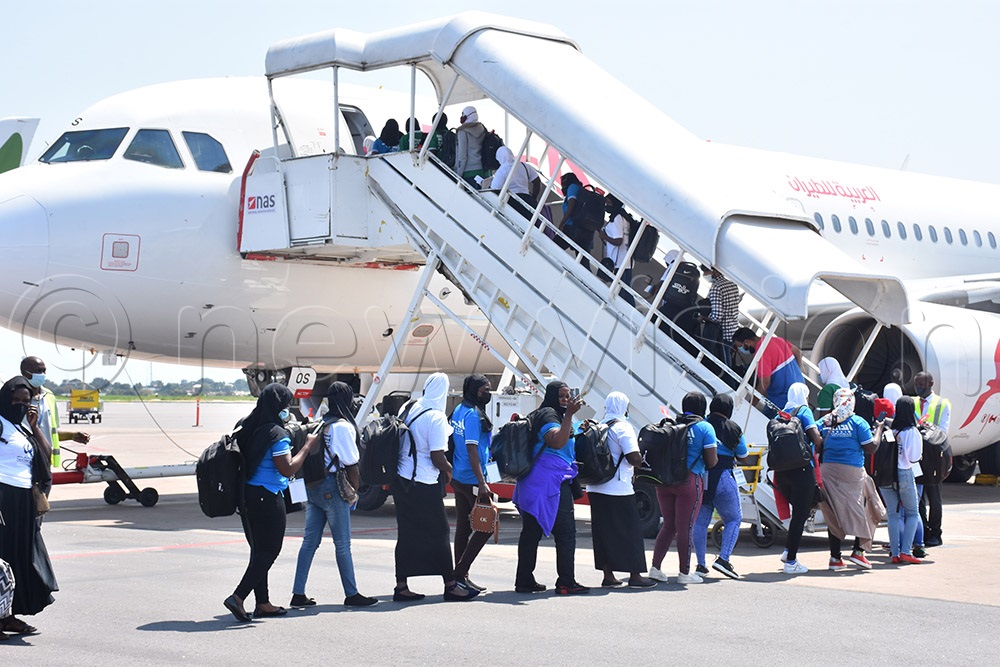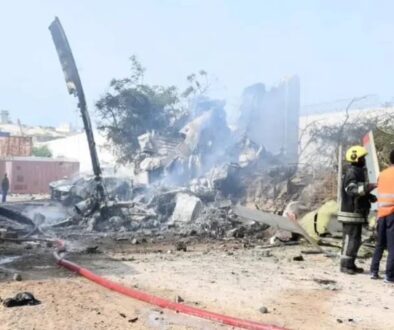Middle East immigrant workers worrying – report

By Stephen Wandera Ouma
KAMPALA – A new study report by Transformative Leaders Network-Africa (TRANETAfrica) in partnership with Global Migrant Network, (GLOMINET) and the International Institute of Debate, Lebanon on migrant workers in the Middle East has reported workers’ gross human rights violations described as a worrying trend. TRANETAfrica has been promoting migrant workers’ rights, advancing and deepening knowledge of modern labour.
The study on the human rights situation and operating environment for migrant workers in the Middle East and Northern Africa was conducted to assess human rights and examine the factors fostering human rights violations. It also looked at the employment legal frameworks of migrant workers and analysed what has been done to mitigate the dire situation.
“In Uganda for instance, some potential migrant workers and those already in the Middle East either to get the job and or to be cleared by various institutions involved in the clearance of the migrant workers. Some participants said they had paid between Shs500,000 to Shs3,000,000,” reads the report.
It adds, “After departure challenges include lack of social protection, sexual harassment, working beyond normal hours, dangerous working conditions, torture and inhumane treatment. There is also delayed or denial of payment, confiscation of movement, identification and communications gadgets, unrealistic employment contracts, regulations in the financial sector challenges with remitting money to their home countries, language barrier and documents being drafted in Arabi and racial abuse.”
The report says on return from abroad, immigrant workers are still faced with various challenges.
“They face difficulty in reintegrating into the community, psychological trauma, inability to restore destroyed marriages, wastage of remittances by their family members, living with permanent disabilities and lack of comprehensive reintegration programmes for returning migrant workers,” it further reads.
The report attributes the scramble for jobs in the Middle East to a lack of decent jobs in the countries of origin, persuasive advertising, corruption during the recruitment processes in the home countries, poor pay in the home countries, trade liberalization, human trafficking, limited jobs in the labour exporting countries, need for adventure and change of environment. It further attributes the search for jobs abroad to a lack of access to business financing and credit facilities due to what the financial institutions claim is vulnerability.
The report attributes human rights violations to limited knowledge of the migrant workers of their rights, and a lack of emphasis on the human rights of migrant workers in labour-exporting countries.
“Immigrant workers are not applicability of the local laws in the host countries, lack of knowledge of the migrant workers on the redress mechanisms, non-implementation of contracts and unrealistic contracts and economic recession in the Middle East. There is also a lack of knowledge of how much money is paid by the sponsors to the recruitment companies, powerful nature of the people behind the recruitment firms,” it reads.
The report makes recommendations to formalise the labour export.
“However, today’s discourse should no longer be whether or not externalization of labour should continue. The reality of globalization leaves us with no option, but to facilitate migration flows so that every actor in the migration process gains more than loses. The area of migrant workers’ rights advocacy and engagement is a fairly new focus area and the majority of the NGOs have been focusing on trafficking in persons rather than human rights.
The most probable understanding that we would all have to agree with is that anti-human trafficking work focuses more on making trafficking impossible while human rights advocacy for the migrant workers focuses more on safeguarding, enhancing, and ensuring that migrant workers’ rights are protected and upheld in the host countries.
However, where there exist apparent inconsistencies, there is room to create a favourable working environment for migrant workers and open up spaces for dialogue among various institutions.
It is estimated in 2017 the Arab States hosted 23 million migrant workers, with 9 million (39 per cent) women migrant workers. The majority of these workers are from Asia, with a sizeable number also coming from Africa, especially Egypt, and increasingly from East Africa according to the Population Division of the United Nations Department of Economic Affairs (UNDESA).
In an interview after the launch, Mr. Ekakoro Fredrick Etoori the Executive Director of TRANET-Africa said, “We believe that ensuring safe and orderly migration and fair and safe workplaces should be at the core of all migration and economic development efforts. We advocate for living and working conditions that provide migrant workers with more alternatives in their countries of origin, and to develop and disseminate information to potential migrants. We further aim to undertake migration, employment and similar trade policy research and advocacy in the area of migration and economic development reforms to ensure that governments, intergovernmental agencies as well as development partners have a wider perception of the migration issues to inform their decision-making in that regard.”
TRANET-Africa recently launched a campaign dubbed, “Return Enslaved Ugandan Girls” that demanded the repatriation of stranded migrant workers in the Middle East, creating awareness about the negative impacts of exporting labour and enhancing awareness about the shortcomings of the business to the general public.


